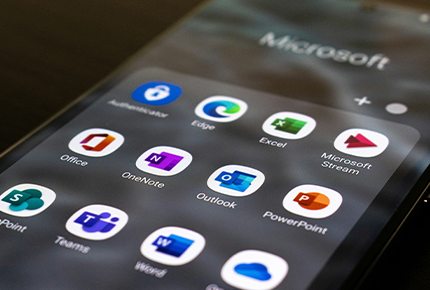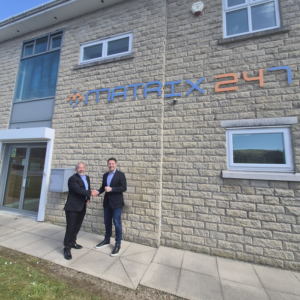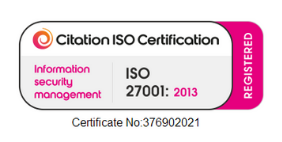Cloud Phone System Alternatives
Cloud phone systems is the most common form of modern business communication, offering a wide range of features and benefits for UK organisations. Yet, for all its benefits, some UK businesses prefer alternatives. The question is, are there any alternatives, and if so, how do they compare to cloud telephony as a whole?
Are there alternatives to cloud telephony for business communication?
There are alternatives to cloud telephony, which are typically based on older technologies, with many businesses haven’t made the switch to modern communication methods for one reason or another. For example, some rural businesses might not have access to a stable, high-speed internet connection required to get the most from cloud telephony.
With the switch off of copper-based traditional phone lines, ISDN and Public Switched Telephone Network (PSTN) being rolled out now, there’s never been a better time to assess and understand your business phone system options.
Here’s a rundown of some of the alternatives to cloud telephony:
- On-Premise PBX (Private Bank Exchange) Systems – These are localised, on-site business phone systems. Some businesses prefer them because they own and maintain the hardware, networking, and more at their location or local data centre.
- Analogue Landline Systems – Analogue phone systems are no longer available to purchase. These traditional phone lines requiring copper wire are being rolled out and transitioned to cloud based phone systems.
- Hybrid PBX Systems – Some businesses use hybrid PBX systems, incorporating on-premises hardware, but utilise localised VoIP systems, which keeps them independent of the cloud.
- Mobile-Only – Mobile-only systems use standard mobile phone networks and professional business numbers. This is helpful for businesses that prefer simplicity and flexibility.
In short, there are alternatives that UK firms still use today. However, whether they’re the best option is another matter entirely. Many businesses could upgrade their communications if they explored some of the newer options available via cloud phone systems.
How cloud telephony compares to traditional business communication
Traditional business communication is archaic and doesn’t allow you to reach your full potential. In today’s modern business world, additional features, flexibility, scalability and AI capabilities are beneficial for communication.
Cloud telephony is also far more cost-effective because you can cut out in-house hardware and regular maintenance. That also translates to less downtime and more flexibility when scaling as your business grows.
It’s also worth mentioning that as concerns over cybersecurity grow, cloud telephony addresses this problem with features unavailable on traditional phone systems. For example, organisations can take advantage of end-to-end encryption and cloud masking.

How cloud telephony compares to VoIP
Cloud telephony and VoIP are part of the same ecosystem, but don’t make the mistake of assuming they’re the same thing. Yes, they both use the internet to communicate, but that’s where the similarities end.
Cloud telephony is hosted and operates on the internet offering a wide range of communication features, whereas VoIP is merely the process of transmitting voice calls through data packets over the internet. In fact, cloud telephony utilises the technology of VoIP for phone calls, but also offers features such as instant messaging, file sharing and video call.
Adopting cloud telephony as your go-to option means you get rid of physical hardware entirely. And in the remote working era, using your phone, tablet, or laptop is a huge boon to businesses.
How cloud telephony compares to Microsoft call software
Microsoft’s communication software, known as Microsoft Teams, is essentially a cloud telephony software because it uses cloud-based infrastructure for business communications.
Where they differ is in their scope and how they integrate into businesses. Microsoft Teams is aimed at businesses relying on the broader Microsoft ecosystem. For example, if you’re already using Microsoft 365 for business, it makes sense to use Microsoft’s call software as an integration.
General cloud telephony solutions are better suited if you’ve got a large tech stack and a range of third-party apps. However, beyond integrations and scope, there’s little difference between the two.

Regardless of which cloud-based phone system you use, the benefits of migrating to the cloud are clear. But we understand that managing migrations can be a headache you don’t want, which is where the team at Matrix247 comes in.
Let our team be your personal migration partner as we migrate your business communications to the cloud and provide support and training along the way. To learn more, get in touch with the team today.
Latest Blogs News Articles Events

Matrix247 has been acquired by Focus Group
Focus Group, a leading provider of business technology, has acquired Matrix247 to strengthen comms and managed IT portfolio.

Top IT trends for SME’s in 2025
By leveraging advanced technology, SMEs can improve operational efficiency, gain a competitive advantage, and provide quality customer experiences despite the ongoing difficulties.

Cloud Phone System Alternatives
There are alternatives to cloud telephony, which are typically based on older technologies as many businesses haven’t made the switch to modern communication methods.




